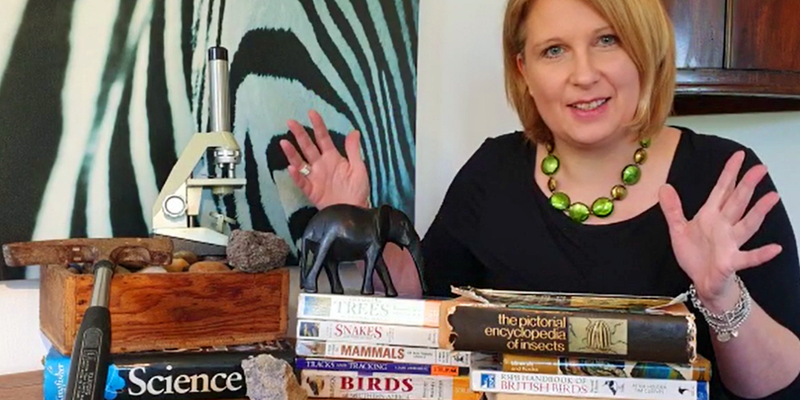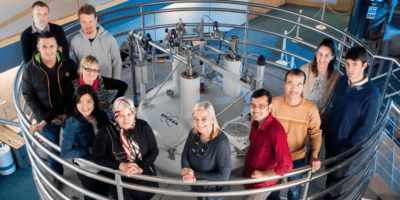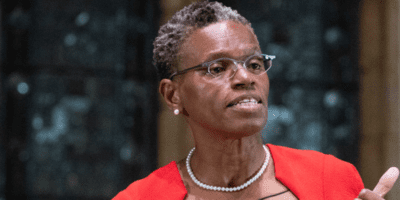Katherine Fletcher is MP for South Ribble in Lancashire and she was the first in her family to go the university, studying biology at the University of Nottingham. Before becoming an MP, she was an SME business owner, manufacturing and exporting wooden products, and prior to that she worked in IT and management consultancy. Katherine is a member of the House of Commons Science and Technology Select Committee.

“Diversity of thought in science is vital because it’s the essence of the discipline.”
Sliding doors moment
I was born and raised in Wythenshawe. I went to state schools in Manchester, very briefly to Royal Oak and then to St Wilfrid’s, and then at 7, I went to Sandilands School.
I sat the external 11 Plus for Trafford, because Trafford Council was giving some non-local kids an opportunity to sit the 11 Plus. In my year and a couple of years on either side they were effectively running a bursary scheme for kids from outside the area. I sat the exam in a drafty hall in Sale, and they took the top six marks in my year, so I got into Altrincham Girls Grammar, which is a very ‘Sliding Doors moment’ for a ten-year-old if you think about it.
I went all the way through all the grammar to sixth form. I’m a scientist by nature, so I wanted to do biology, physics and chemistry. They wouldn’t let me do physics (that’s how far the world has moved on since I was at school), so I got to do biology, chemistry, geography and general studies. I ended up with straight As, and then I chose to do biology at Nottingham University because, at the time, Nottingham seemed like an exotic and distant location, and I didn’t want to go anywhere else. That was about as far as I could stretch.
I’m the first person in my family to go to uni, so I didn’t really understand the system. With hindsight, I may have done things differently, but I was very happy there. I did a straight biology degree which allowed me to cover everything from immunology, parasitology, marine ecology all the way through human evolution. I really touched on a lot of the different disciplines (and I still use it today as part of the Science and Technology Select Committee work).
I was doing bits of research work. My undergrad paper was on Caenorhabditis elegans, the little worms. I used transgenic ones with inserted heat shock proteins as an environmental pollution or toxicity monitor. I did mine on river sediments.
The short version: in theory is if there’s a lot of mercury in river sediment, you put these little worms in it, you leave the worms in it for a week, and then you check what the measurable levels of production of these heat shock proteins, the exposure to toxicity has produced. It was very cutting edge because it was effectively gene-edited animals. So that was really interesting.
From consultancy to entrepreneurship to politics
I considered staying in science but, frankly, I couldn’t afford to because lots of the internships or jobs would have required moving away from home and there just wasn’t the money. So, I went through the list of graduate jobs and what was the highest-paid. The first two were lawyer, a doctor and I wasn’t qualified to do them, but then the next one was management consultancy.
It said you needed a logical brain and an aptitude for science and tech, which I was doing anyway as I had been building my own PCs at the time. So, I ended up working in consultancy for years, all over the world, putting in computer systems. I then swapped into business and change, where you realise quite quickly that technology doesn’t solve the problem for humans. It’s the garbage in, garbage out principle for technology.
By this point I was a bit disenfranchised because I was working away going away from Monday and coming back on a Thursday, and I just got bit sick of it, so I started my own business. My move into politics came about quite randomly as a result of a conversation with someone. I was having another moan about the difference between the southern infrastructure and the northern infrastructure, and the fact that I had to move away from home during the week to get a job.
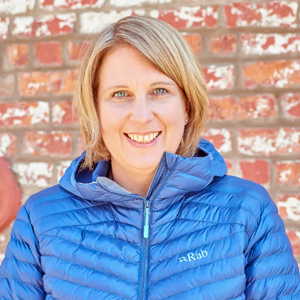
Science isn’t all pale, male and stale
When I became an MP, I didn’t realise that select committees are actually really quite competitive. There were an awful lot of people going: “Are you going for Education” or “Are you going for Foreign Affairs?”. To which I said: “No, I’m going for Science and Tech, because it’s what I know.”.
I genuinely think it’s the most interesting and cross-cutting portfolio within the opportunities, so I made a beeline for it. We’re very fortunate to have Greg Clark as the chair, because he is the former BEIS (Department for Business, Energy and Skills) Secretary of State, and he brings strong expertise there in terms of practical implementation.
Our remit is very, very broad. Most select committees are set up to shadow a department and ultimately to hold them to account, but because we’re in the 21st century, science and technology are embedded in our everyday life in every way and are one of the major challenges of the 21st century. We have quite an interesting conversation every time we try to bring down the potential list of inquiries we want to make because the long the list is so long.
So, at the moment, we’re waiting for the Government’s response to our COVID-19 inquiry, which has been running literally since March 2020. You know, we’re still going through that we’ve got an inquiry into hydrogen, we’ve got an inquiry into space and satellites. We are also considering research integrity, so how to make sure that there isn’t a reproducibility issue, because British science is at the pinnacle of it.
On this committee you end up talking to lots of different departments. Because science is science, select committees are made up of members from all political parties and persuasions. Without telling you anything you wouldn’t already know, sometimes politics can become fractious, but on the science and the numbers with a demonstrable truth we all share, we get on very well. I love working cross parties with colleagues from the SNP or Labour, and we have a really constructive working relationship.
We’ve got Graham Stringer, who is a chemist, and then you’ve got the likes of Dawn Butler, who can code C++, and Carol Monaghan, who’s a physicist, and then you’ve got some people that are perhaps less steeped in it, but very interested in it. It’s very cool. Something we talk about quite a lot is the role we have to play to showcase that we’re not all pale, male and stale individuals within the discipline.
Impact of COVID-19

The Committee was rigorous in spending extra time taking evidence from a range of scientists across all of the different disciplines, to make sure that they were on the record. The thing that the chair did, right from the start, was to say: “This is going to be enormous. We need to capture what people were thinking at the time, because not every decision is going to be got 100%, right. It’s just not possible in this context, so let’s be sure to track the evolution of thought.”
Understanding the scientific facts
Diversity of thought in science is vital because it’s the essence of the discipline. It’s thinking the unthinkable and then formulating hypotheses and testing them in a reverse manner.
I’m dyslexic and I find that I come at a problem in a completely different way than somebody else, but the discipline of science says: “Well, I can have that idea, and you can have that idea, but let’s set up double-blind trial, or test the statistical significance of the analysis. What evidence base proves or disproves your hypothesis?”
There’s that fabulous quote from Eric Idle when someone’s interviewing him on that Galaxy Song that he wrote. The journalist says: “Well, haven’t some of the facts changed since you wrote it?” Eric Idle looks him up and down and says: “Well, the facts haven’t changed, our understanding of the facts has changed.”
How Womanthology readers can support
All of our committee work is live-streamed on Parliament live, you can watch any committee session back. We take submissions for evidence from the public. So, I would advise your readers to engage in the process.
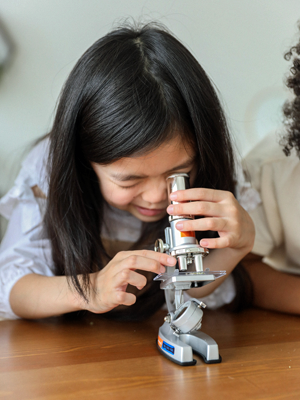
Coming up next
I’m genuinely excited about being able to see the back of COVID. It’s been overwhelming for everyone over these last two years, but we can also make the most of the opportunities that COVID has shown to be possible. Who thought it was possible to design a vaccine from scratch and get it into arms that quickly and safely? That’s a triumph. The investments that we’re making a UK manufacturing, the leadership that Britain has shown on the world stage in this important area of health care medicine.
The other thing I’m excited about, and the reason I got into politics was all about the Northern Powerhouse/Levelling Up. It’s that idea that making sure that the North of England is well placed to do what it’s brilliant at. It’s got space, it’s got skills, it’s got practical nouse.
How do we make sure that it can tackle some of the challenges we face? Who’s going to create an efficient hydro hydrogen catalyser? Why can’t they be from Preston? Or Sheffield? Or Manchester?

